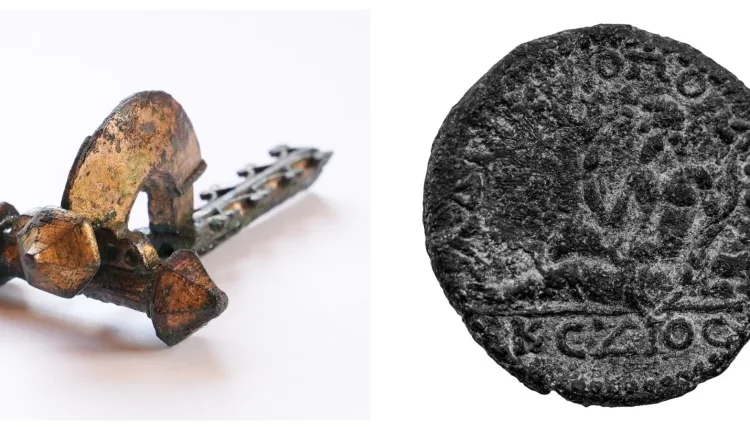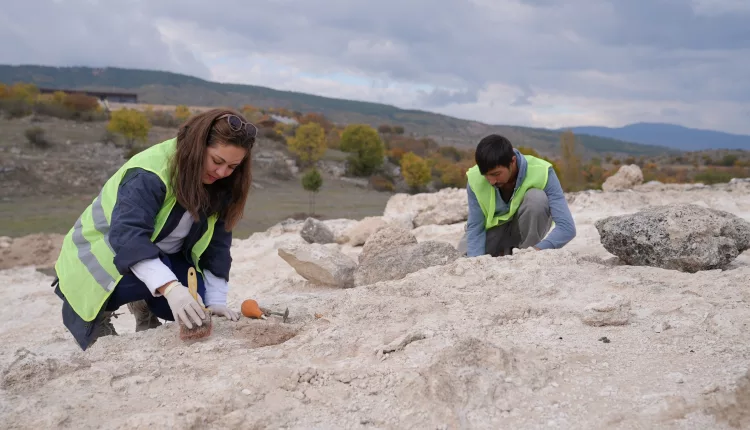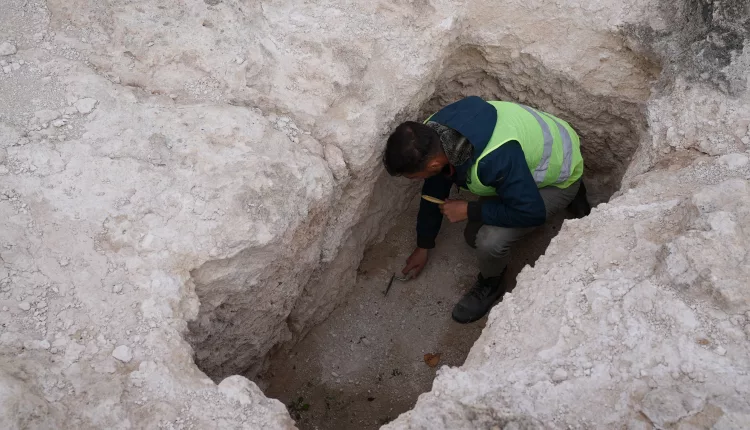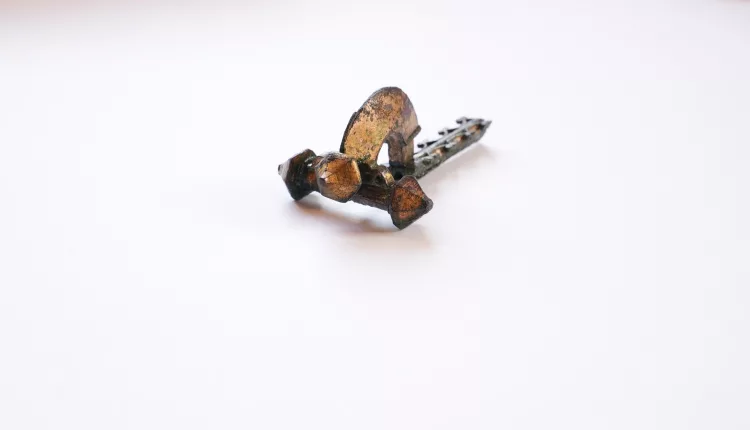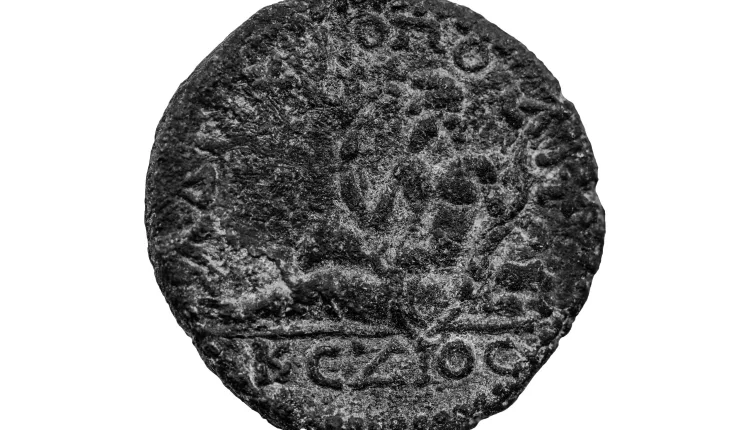A crossbow-type fibula belonging to the 5th century and a coin depicting a river god from the 2nd century were unearthed during archaeological excavations in the ancient city of Hadrianopolis in the Eskipazar district of Karabük province in Türkiye.
Apart from the fibula and the coin, structures such as two baths, two churches, a defensive structure, rock tombs, a theater, an arched and domed structure, a monumental cultic niche, a city wall, a villa, other monumental buildings and some cult areas have been found so far in the ancient city of Hadrianopolis, which is famous for the mosaics depicting many animals on the floors of churches and therefore called the “Zeugma of the Black Sea.”
Stating that the burial tradition in the Southern Necropolis must have continued uninterruptedly for approximately 300 years based on the periods when the coin and the fibula, which was thought to have been used as jewelry as well, belonged, Assoc. Prof. Dr. Ersin Çelikbaş, an academician at the Archaeology Department of the Faculty of Letters at Karabük University, said that it was concluded that Hadrianopolis was a headquarters of the Roman Empire in Southern Paphlagonia.

